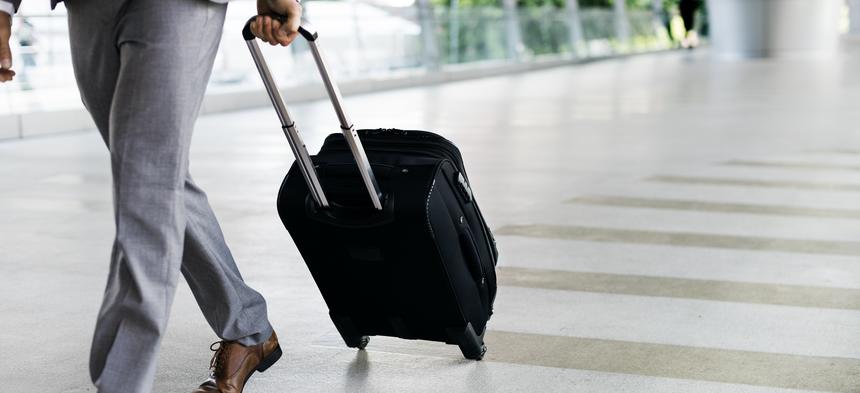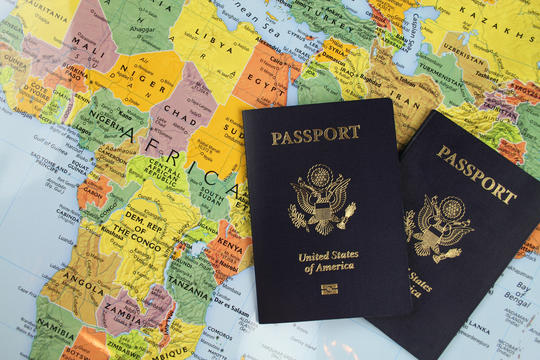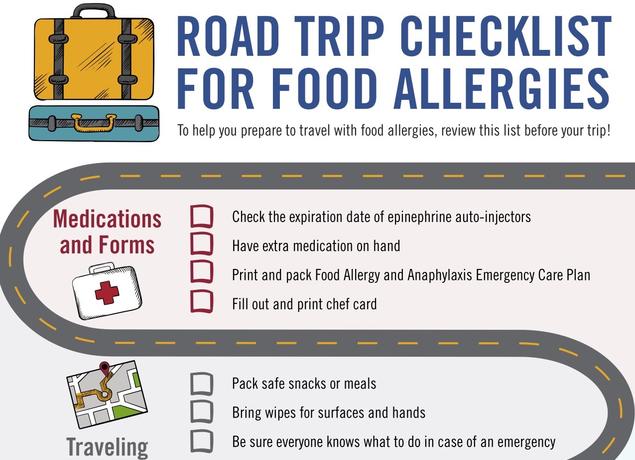Traveling
Whether you're traveling for business or pleasure, planning ahead is key to making your trip safe and enjoyable.

Getting ready for a trip? Whether you’re traveling for business or pleasure, planning ahead is key to making your trip safe and enjoyable. This advice will help get you started.
- As always, communication helps a great deal. The people who will be serving you—not to mention your traveling companions—can only attend to your needs if you tell them about your food allergy.
- If you know in advance where you’ll be dining, research the restaurant menus, just as you would for a local eating establishment.
- When making special requests, give as much lead time as you can to trip organizers and airline, hotel and restaurant staff. This will improve the chances that they can accommodate your needs.
- Bring a travel kit with all your medications, including extra epinephrine auto-injectors. Do this no matter how far from home you plan to be.
- Also bring extra copies of your Food Allergy & Anaphylaxis Emergency Care Plan.
- If you’re traveling with other people, make sure someone knows where to find these items and how to give epinephrine.
- Let your doctor know you’re traveling. Ask if he or she will be available to call, email or fax in a prescription for additional epinephrine doses, should you need them.
Read on for more tips about flying, international travel and more.
Air Travel with Epinephrine
When you travel, you must always be prepared for a severe allergic reaction. It is critical that you carry two epinephrine doses with you at all times.
You may wonder what this means for airport security and other points during air travel.
First Things First

Always carry your Food Allergy & Anaphylaxis Emergency Care Plan. Put it with your epinephrine and other prescribed medication.
Keep your epinephrine with you. Do not put it in your checked luggage or store it in the overhead bin.
Let your traveling companions know about your allergies. Make sure they know what to do in case of an emergency on the flight and where your auto-injector is.
Taking Epinephrine Through Airport Security
FARE’s medical advisers recommend sending your epinephrine through the x-ray machines and scanners used to screen carry-on luggage. While research on this topic is limited, there is no scientific evidence that these machines will change the effectiveness of the medication. The amount of radiation produced by an airport x-ray machine is similar to the amount of ambient radiation everyone experiences in a typical day on planet Earth.
Furthermore, FARE recommends using the x-ray machine over allowing a Transportation Security Administration (TSA) official to visually inspect your device. Such inspections may increase the risk that the epinephrine is accidentally activated, damaged or lost.
You can find more information about traveling with medications and the effects of airport x-ray systems on medication from the U.S. Food and Drug Administration and Transportation Security Administration (TSA).
Taking Epinephrine on a Flight
According to the TSA, passengers are allowed to bring their epinephrine on board a flight.
However, you may need to show the printed label that identifies the medication. You should also be prepared to show the prescription label from the pharmacy.
It also helps to have a note from your doctor that confirms your food allergy and your need to carry medication.
More About TSA’s Policies
This information is provided by the International Food Allergy & Anaphylaxis Alliance.
TSA security currently permits over-the-counter liquid medications. However, volumes larger than 3.4 ounces must be declared to a TSA officer. A declaration can be made verbally, in writing or by a person’s companion, caregiver, interpreter or family member. TSA may also allow gels or frozen liquids needed to cool medically related items.
Bear in mind that there is always a subjective element to airline security. Much is left to the individual screener’s discretion.
If you have questions, call TSA at (866) 289-9673, email TSA-ContactCenter@dhs.gov or go online.
Are to-do lists more your thing?
Check out our handy checklist infographic—perfect for road trips or anywhere the travel bug takes you!
Download Infographic


